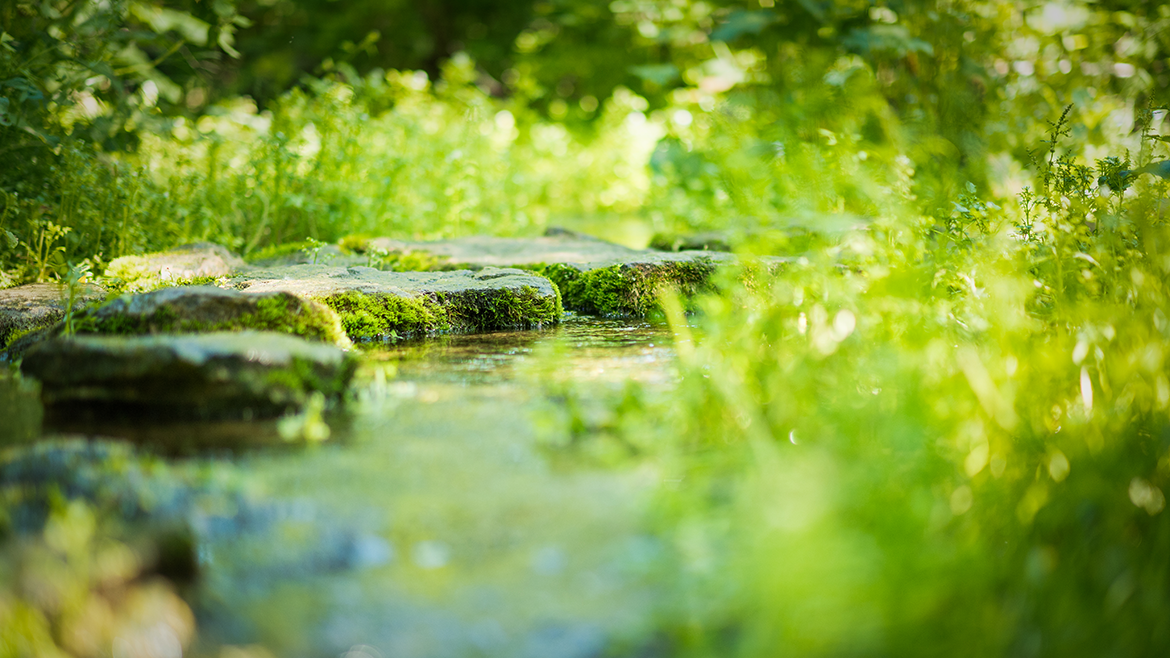Program & People News
And the Student Becomes the Master
Although she started as a student, Kathy Kline left Sea Grant in September as a professional writer with an award-winning book and a long list of accomplishments resulting from a successful career as an education specialist.
Kline began her time at Wisconsin Sea Grant in 2000 as a graduate student working on the Earthwatch Radio program produced by Rich Hoops. After receiving her master’s degree in life science communication, Kline headed east to New Hampshire Sea Grant, where she worked as a science writer from 2002 to 2004. The lure of her home state proved irresistible, and Kline returned to Wisconsin Sea Grant as a writer for six more years. She then joined the outreach team and became a part-time education specialist in 2012.
An enduring part of Kline’s legacy will clearly be “People of the Sturgeon: Wisconsin’s Love Affair with an Ancient Fish,” co-written with Ronald Bruch and Fred Binkowski and including photographs by Bob Rashid. Published by the Wisconsin Historical Society Press in 2009, and winning 12 awards, the book examines the profound cultural impact of sturgeon in Wisconsin through interviews, stories and photographs. Due to its enduring success, the book has recently been printed in a paperback edition.
Co-author Binkowski says, “When you look through the book, there are many pages describing experiences that Ron and I have lived. Kathy’s science writing skills brought those events to life and provided an opportunity for a wide audience of people to learn about the history of lake sturgeon on the Lake Winnebago system. Kathy’s commitment to producing the book was sincere and enthusiastic, and her engagement with sturgeon conservation and the Lake Winnebago community continued long after the book’s publication.”
As an education specialist, Kline was a driving force behind the Eat Wisconsin Fish campaign, an effort to promote local fish consumption that included culinary events, public opinion research, industry collaborations, and an informative website eatwisconsinfish.org. One of Kline’s collaborators on the project was Fisheries Outreach Specialist Titus Seilheimer: “Kathy’s passion for educating and for local fish was the driving force behind raising awareness of Wisconsin’s wild-caught and farm-raised fish through the Eat Wisconsin Fish program. Her passion and skill for education and communication will be greatly missed.”
Kline’s passion for education brought her to collaborate with Minnesota Sea Grant through the Center for Great Lakes Literacy to provide teachers real-world Great Lakes sailing and research experience during voyages aboard the S/V Denis Sullivan. After creating a hands-on underwater engineering activity for the Wisconsin Alumni Association Grandparents University program, she worked with middle-school science teacher Lynn Kurth to develop the ROVe pack, a complete underwater remotely operated vehicle curriculum kit. Her work also brought the Attack Packs, traveling AIS kits, back into relevance.
Connections with teachers and others also allowed Kline to influence the proposals Sea Grant receives for education outreach projects. According to Assistant Director for Extension David Hart, “Kathy helped shape and cultivate the education proposals we receive. We used to fund just one per cycle. Now we’re up to three, and they’re all high-quality, impactful projects.”
Since 2009, Kline has also been hard at work caring for a growing family, and her departure from Sea Grant will allow her more time for that project.
–EAW
A Career Solving Great Lakes Coastal Engineering Problems
Wisconsin Sea Grant Coastal Engineer Gene Clark’s last day in the office will be at the end of January. During his 15 years with our program, he has helped solve major problems plaguing coasts and landowners on lakes Michigan and Superior.
His standout accomplishments include the Sea Caves Watch Project, which is a boater safety effort in the Apostle Islands National Lakeshore, the freshwater steel corrosion issue in Lake Superior and the beneficial reuse of material dredged from Great Lakes harbors.
Clark’s work on the steel corrosion project earned him Sea Grant’s highest honor in 2014, the Sea Grant Association’s Research to Application Award. Clark’s work ethic and efforts earned him a 2015 staff excellence award from the University of Wisconsin System Board of Regents.
Ever the team player, Clark summed up his career with this: “Of the many projects I’ve worked on, the ones I feel best about were ones that were collaborative efforts with other partners. It was never just my work alone. That’s what I’ll always remember as one of the best things about this position.”
A more detailed story about Gene’s accomplishments and plans for after retirement is available on our website at go.wisc.edu/62sp46.
–MEZ
John R. Karl (1963-2018)
Sea Grant videographer John Karl passed away in August, leaving behind a legacy of unwavering efforts to build science literacy, intellectual curiosity and cheerful goodwill.
Karl began his 20 years at Sea Grant as a writer in March of 1998 and gradually took on more video projects until he became a full-time videographer. He was instrumental in the Wisconsin shipwrecks projects from the very beginning, working as a co-investigator on funded projects and even diving alongside the underwater archeologists.
Tamara Thomsen, maritime archaeologist with the Wisconsin Historical Society, said, “John stepped up to the challenge of making our message about shipwreck preservation clear and consistent — which I imagine wasn’t so easy at first. I worked with him on our joint website wisconsinshipwrecks.org. We co-presented lectures on several occasions, put together scripts for museum exhibits and museum kiosks, wrote maritime history geocaches. and created more than 40 Maritime Trails markers together.”
She continued, “To have a more active understanding of our research, John decided to learn to scuba dive and he participated in field work with us and filmed during many of our archaeological surveys of shipwrecks and historic dock structures. Impact from all of this work is now seen and recognized in all corners of our state. When he came out on project with us, he would always be the first one in the water and the last one out. He just exuded happiness whenever he was underwater.”
As videographer, Karl produced numerous videos illustrating the work done by Sea Grant and Water Resources Institute researchers, highlighting staff members and helping with Sea Grant Network projects. (See go.wisc.edu/s6263o.) One of those projects, a video designed to highlight the many accomplishments of the Sea Grant program over its past 50 years, brought Karl into contact with many members of the network and many opinions. It was not a simple project.
Paul Focazio of New York Sea Grant said, “John continued to shine through the years, most recently when it came to helping out with the 50th anniversary video – that was quite the challenging task, as I recall the conference call discussions.”
Yet the video was a success, with the Sea Grant Communications Network praising John’s efforts as “superb.”
No description of Karl’s legacy would be complete without acknowledgement of his kindness and enthusiasm.
Sea Grant and Water Resources Institute Director Jim Hurley said, “I’ve always been so impressed with how John could start a conversation with anyone, under any conditions. Maybe that’s the keen sense of a storyteller, but I think it more of a person with a huge heart. John truly cared about his friends, the people he worked with, the people he interviewed and the people he just met. We’ll miss him dearly.”


